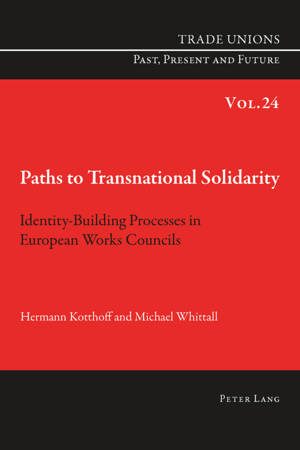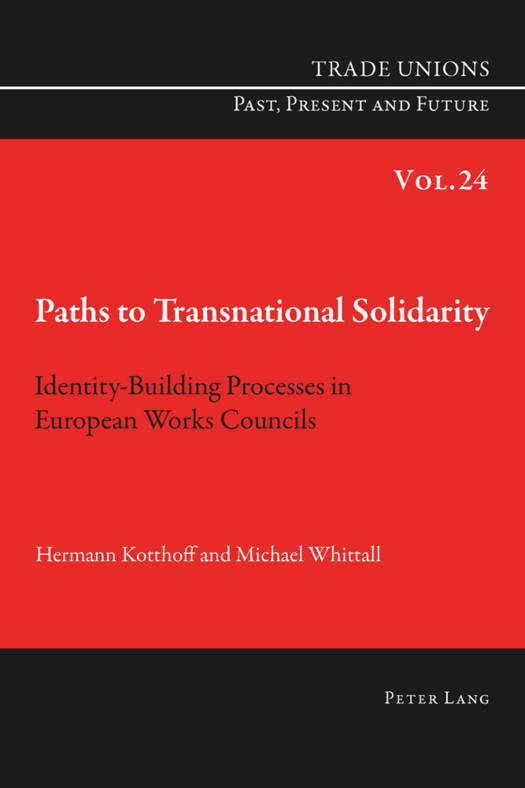
Je cadeautjes zeker op tijd in huis hebben voor de feestdagen? Kom langs in onze winkels en vind het perfecte geschenk!
- Afhalen na 1 uur in een winkel met voorraad
- Gratis thuislevering in België vanaf € 30
- Ruim aanbod met 7 miljoen producten
Je cadeautjes zeker op tijd in huis hebben voor de feestdagen? Kom langs in onze winkels en vind het perfecte geschenk!
- Afhalen na 1 uur in een winkel met voorraad
- Gratis thuislevering in België vanaf € 30
- Ruim aanbod met 7 miljoen producten
Zoeken
Paths to Transnational Solidarity
Identity-Building Processes in European Works Councils
Hermann Kotthoff, Michael Whittall
€ 162,45
+ 324 punten
Omschrijving
With national industrial relations systems struggling to keep apace with the global and mobile nature of capital, the emergence of the European works council has caught the imagination of both practitioners and scholars of this institution in the last two decades. European works councils find themselves at the centre of an ever emerging European industrial relations landscape, offering employees of multinationals within the European Economic Area the opportunity to work together in regulating employment conditions. An in-depth empirical study of five European works councils, this book offers a unique look into factors which promote and hinder the development of solidarity amongst employees. With a sociological bent, this volume is a must for EWC delegates struggling to deal with geographical, cultural and historical factors that undermine relations between them.
Specificaties
Betrokkenen
- Auteur(s):
- Uitgeverij:
Inhoud
- Aantal bladzijden:
- 278
- Taal:
- Engels
- Reeks:
- Reeksnummer:
- nr. 24
Eigenschappen
- Productcode (EAN):
- 9783034317757
- Verschijningsdatum:
- 17/03/2014
- Uitvoering:
- Paperback
- Formaat:
- Trade paperback (VS)
- Afmetingen:
- 152 mm x 229 mm
- Gewicht:
- 385 g

Alleen bij Standaard Boekhandel
+ 324 punten op je klantenkaart van Standaard Boekhandel
Beoordelingen
We publiceren alleen reviews die voldoen aan de voorwaarden voor reviews. Bekijk onze voorwaarden voor reviews.









